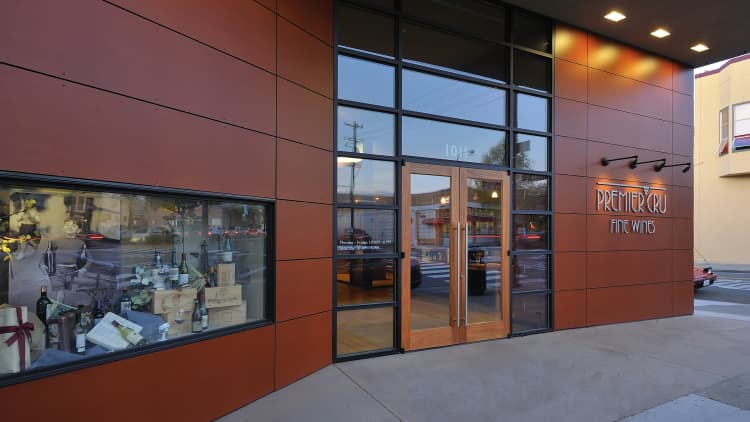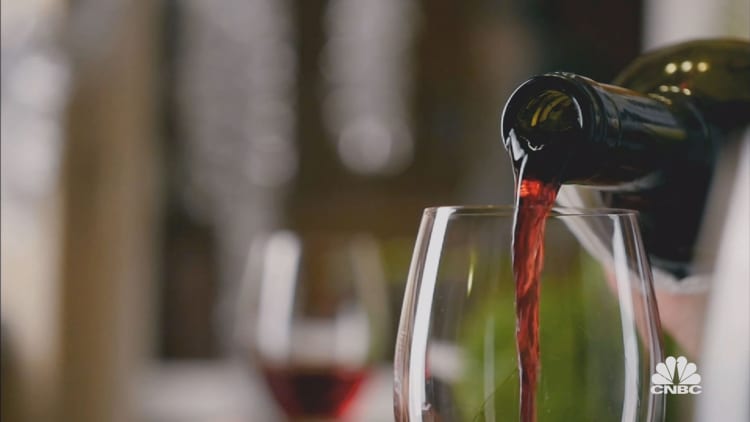In a popular 1970s ad campaign for the Paul Masson winery, actor and director Orson Welles would peer into the camera and declare, "We will sell no wine before its time." But these days, it is common for the most elite wineries to sell wine before it is even in the bottle — and for the most discerning wine aficionados to eagerly buy it up. If you are thinking of taking your wine hobby to the next level, proceed with caution.
The use of wine futures — often referred to as buying "en primeur"— along with its close cousin, "pre-arrival" buying, are important vehicles for serious wine collectors. The idea is to pay upfront to secure wine from a particular vintage or estate that might be hard to come by after it goes on sale to the general public. In some limited cases, the practice can also save you money. But as widespread as the practice is in the world of fine wine, it is largely unregulated. That means it carries some significant risks.
In one of the most notorious examples, recounted on the next episode of CNBC's "American Greed," California wine merchant John Fox ran a Ponzi scheme disguised as a legitimate business known as Premier Cru. Operating online and out of an elaborate storefront in Berkeley, California, Premier Cru sold pre-arrival wine. That is wine that has already been bottled but has not yet been shipped.
But investigators found that in many cases, Fox was offering wine that was not his to sell. In other cases, he would sell the same wine to multiple buyers. Customers eventually became suspicious when wine took longer and longer to deliver, or it did not show up at all. Prosecutors say Fox sold at least $20 million in "phantom" wine to some 4,500 customers between 2000 and 2015. Fox eventually pleaded guilty to a single count of wire fraud and is serving a 6½ year federal prison sentence. He was also ordered to forfeit more than $55 million in proceeds from the fraud, though authorities say the full extent of victims' losses may never be known.
"Anybody who's going to spend a decent amount of money purchasing wine, whether it's pre-arrival or futures or even buying old and rare wine in the secondary market, it behooves the buyer to do a little bit of research online," said Maureen Downey, a wine expert and founder of WineFraud.com, a research and education site. She offered some tips to aspiring collectors.
Do your homework
The first step is to know your merchant. Some research is basic, like asking to see the company's business license. The reaction alone may be telling, Downey says.
"If people are going to be afraid because you're asking them if they're licensed, they're probably not people you should be doing business with."
Look for merchants that have been in business a long time and have a track record. Wine collectors love to compare notes on message boards at sites like Robert Parker Wine Advocate and Wine Berserkers.
"There should be a history of them out in the market someplace where you can check with other people to make sure that they purchased wines and received them in time or that the wines that they purchased are actually the wines they received at all," Downey said.

St. Louis wine collector Paul Higgins admits to "American Greed" that he didn't really check out Fox's Premier Cru until it was too late — after multiple cases of wine failed to show up. Then, he began looking up the online comments.
"And I saw these universally horrible reviews about Premier Cru saying, 'Stay away! Stay away!'" he recalled.
He did find one glowingly positive review of Fox's business on Yelp, cleverly signed "John F."
Investor beware
There was a time when buying wine futures or pre-arrivals was a way to make money. Like trading in soybean or pork belly futures, you could lock in a low price now, then own a valuable commodity once it is ready for delivery. And wineries were happy to sell their product ahead of time as a hedge against unexpected price declines. But those days are largely over.
"Most people would be better off putting their money in low interest bearing accounts, waiting until the wine arrives," Downey said.
That is because wine prices have gone up considerably in recent years thanks to increasing demand from places like China, and the growth of wine auctions in the U.S. For buyers, that means there is simply less opportunity to find a low price to lock in. Vineyards in Europe, meanwhile, grew tired of seeing their product "flipped" on the secondary market for many times the original price, and began offering less wine for sale ahead of time.
Nowadays, the main benefit of buying wine ahead of time is peace of mind.
"Number one, make sure you're getting the wines that you want, because most of these wines are highly allocated and very difficult to get, and number two, it's provenance, and provenance is just as important as authenticity in the fine wine world," Downey said. In other words, by purchasing directly from the estate, you can make sure the wine you are buying is the real thing.
Final inspection
Even in the futures and pre-arrival markets, the risk of counterfeits is ever-present and growing. Downey says once your wine arrives, be sure to check for some telltale signs.
"Some of the red flags would be, when you receive the wine, if they have importation stickers that are different from the vendor from whom you purchased the wine, or from the place that the vendor told you they were getting the wine in the first place. If the wines appear to have any conditions that look like they might have circulated in the market at all," she said.
Another warning sign is a delivery that does not show up on time. That was a common complaint among Fox's customers, but it still was not enough to trip up his scheme. Instead, Fox would meet his match in a mystery woman who played on his biggest weakness. Today, Fox, 67, is aging in California, at the minimum-security federal prison in Lompoc.
See how the truth was finally spilled about John Fox's vintage Ponzi scheme on an all new episode of "American Greed", Monday, Aug. 7, at 10 p.m. ET/PT on CNBC.




